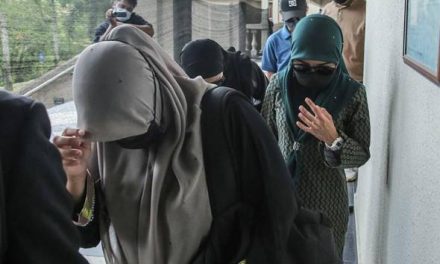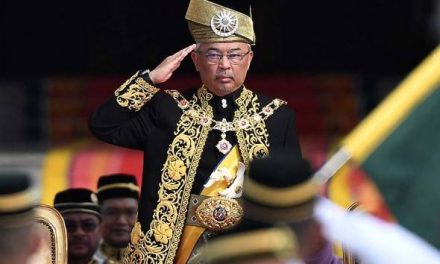KUALA LUMPUR | It might have taken 15 years and countless court hearings, but a former security has finally won his case against the US Embassy in Kuala Lumpur for unlawful dismissal back in 2008.
The Industrial Court has ordered the embassy to pay Subramaniam Letchimanan the sum of RM66,000 within 30 days of the award on April 27, according to court documents sighted by Malay Mail.
The now 54-year-old worked at the embassy as a security guard and was part of a team called the Local Guard Force (LGF) from September 20, 1998 until his termination on April 4, 2008. He filed for representation on May 23, 2008. His case was only taken to the court 10 years later on April 22, 2019.
He claimed he was not given proper reasons for his termination, that it was done without notice, and that subsequent accusations over his termination were untrue, had no basis and were mainly an afterthought.
Subramaniam was accused of missing work or arriving late and failing to carry out his duties properly.
He maintains this was done in bad faith after he tried to get an explanation from the embassy and his superiors for his sudden termination.
The US Embassy claims it had the right to terminate Subramaniam in the manner it did, and the High Court held that the US Embassy, in exercising its sovereign authority, was immune from the jurisdiction of the Industrial Court by virtue of the doctrine of restrictive immunity.
This review was challenged by Subramaniam and the human resources minister at the time in the court of appeal who said the case was best undertaken by the Industrial Court.
According to court documents, the US Embassy relied solely on its sovereignty, claiming local laws have no jurisdiction over it. It said that the dismissal was an act within the sphere of governmental or sovereign activity undertaken in the course of the exercise of the United States’ prerogative as a sovereign state and is not a dispute which arose out of the trading or commercial activity.
The Industrial Court, however, found that Subramaniam had carried out his duties properly, never handled delicate situations and was only told to report to his superiors in case of emergency or action that needed to be taken.
The court in its judgment also drew adverse inference against the US Embassy as it did not call any witnesses during trial with no explanation given as to why they could not testify. There was not enough evidence to show any of the wrongdoings they claimed Subramaniam had committed and refused to compensate him as well.
In its judgment written by Industrial Court chairman Amrik Singh, the court decided the embassy must pay Subramaniam a total of RM66,000, which would be the sum of his salary of RM2,000 per month for 24 months together with compensation in lieu of reinstatement of another nine months’ wages.
When contacted, Subramaniam said it was a relief to finally have a judgment after nearly two decades but added that the episode was not over since he did not know what steps the embassy was going to take next.
He said he was determined to pursue compensation after all these years because similar dismissals had happened before him, and the US Embassy was fearless in thinking it had diplomatic immunity to rely on.
“Dismissals like mine with no reason had been happening before me. It was just that no one pursued them or took them to court,” Subramaniam told Malay Mail.
“They had the mindset of ‘We have immunity. No one can touch us.’ I felt this was not right and that they should be held accountable because they are in Malaysia still, so how can there be no jurisdiction?
“They were strict too, so the accusations hurled at me some didn’t make sense. So in the end, I decided to pursue this till the bitter end because if I did not do this, they will keep doing what they’re doing while claiming they were immune to prosecution,” he said.
Meanwhile, since his case went to court and with the judgment imminent, Subramaniam said the US Embassy has changed its hiring policy for security personnel and now engage former policemen or Army personnel, not civilians.
“They switched up the process and stopped hiring ‘normal’ people because they know more cases like this could happen again. Now they are only hiring former policemen or retired Army personnel,” he added.








